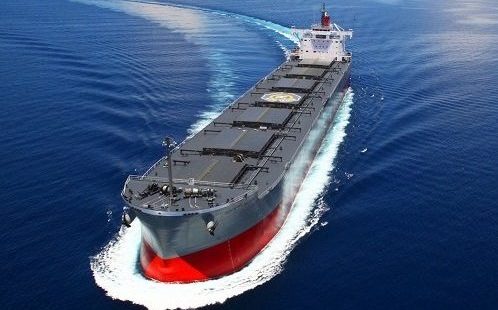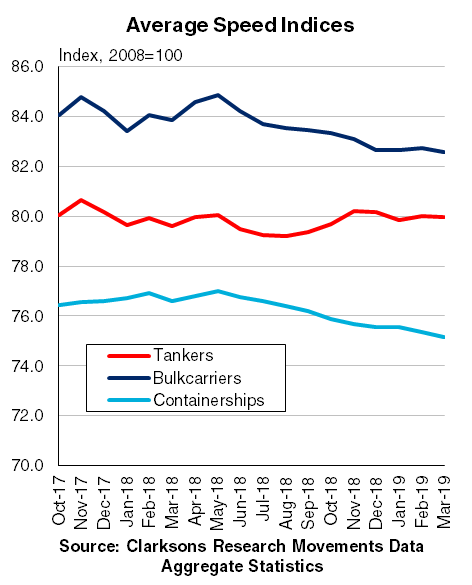Go slow movement driving shipping away from decarbonisation breakthroughs

Two wrongs don’t make a right. That was one of my Dad’s most annoying maxims that he’d deploy to drown out arguments with me while growing up. He still does to this day, come to think of it. Still, the phrase has a certain pertinency to it given this week’s polarised debate on speed limits for ships.
One proposal put forward to International Maritime Organization (IMO) ahead of this month’s important gathering of the Marine Environment Protection Committee (MEPC) promotes the idea of an incentives-driven, goal-based approach to speed up the industry’s decarbonisation process.
This concept however is opposed by many owners who have this week nailed their colours to the ‘go slow’ mast.
A growing number of shipping companies – today’s figure stands at 115 – are backing France’s call for global speed limits for ships. The signatories, a majority of whom are Greek, are not from the liner fraternity. However, they have come up with a proposal to set maximum annual average speeds for containerships, and maximum absolute speeds for the remaining ship types, which take account of minimum speed requirements.
The self-serving proposal, long discussed by the shipping community including at last year’s Posidonia, attempts to paint the signatories in a green light, yet I’d be disappointed if it became reality. It’s yet another Band-Aid covering up the gaping wound ships are unleashing on the planet.
By being forced to go slow, capacity will be soaked up, rates will rise and new ships with today’s old polluting technology would be ordered soon. This is not a solution to today’s decarbonisation drive. It is however a very handy hedge for signatories concerned about rising fuel prices come the start of the global sulphur cap next year.
I’d also take issue with the part of the open letter sent to the IMO earlier this week that states: “[R]ecent studies also suggest that ships are speeding up again as global demand recovers”. This is highly debatable and does not pertain to all ship types. The fact is shipping has been in a de facto slow steaming era for the past decade. Data from Clarksons Research sent to Splash today shows that that on a general level speeds have come down in tankers and bulkers by 15-20% since 2008 and for containers around 25% over the same period.
For me, Anne Steffensen, director general of Danish Shipping, Denmark’s shipowners’ association, summed up the two differing viewpoints – goal-based versus go slow – the best of all when interviewed by Splash.
“A goal-based approach gives a level playing field and drives innovation towards new fuel types whereas speed limits will not solve the problem and risk being a sleeping pill,” Steffensen, a former ambassador, said, not mincing her words.
Splash will be reporting from MEPC in 10 days’ time.

A major factor for the recent rally in Capesize rates has been the reaction from owners to the Vale dam disaster: Vessel speeds declined, pushing available supply down by an est. 3%-4%. As the chart shows, avg Cape speed has declined ~0.5kts.#shipping #drybulk #maritime $BDRY pic.twitter.com/CRzg1wob1W
— Dry Bulk ETF (@DryBulkETF) May 1, 2019

Well put. Nice someone sees through the smokescreen.
Thank you, Sam
Thank you, Sam! The “go slow approach” is merely a commercial strategy to benefit owners, not an environmental solution. While I certainly embrace the idea of profitability for the shipowning community, which has been suffering these past few years, it cannot come at the expense of the environment or our social license to operate! If slow steaming becomes our industry mantra as a means of decarbonization, we will come under attack and the IMO will be discredited. Other, outside, forces will be brought to bear to force us to do what we need to do!
Sam,
Well done for shining a light on go slow movement. Its ironic that they named the initiative after themselves, going slow on any change !!
Sam,
Many thanks for this. What an easy way out of embracing innovation! We have a solution to help both the sulphur cap and lower emissions whilst also saving fuel and certainly not decreasing speed but do you think we can get it taken up. Together with other technological proven innovations it could solve compliance altogether.!
Sam,
Thanks for this. What an easy way out of embracing innovation for decarbonisation! We have an Ai, algorithm-based system which saves an enormous amount on fuel and emissions but although it could be ready to go on a vessel – do you think we can get someone to take it up. No.Together with other systems it can solve even the most stringent emission targets without the need for scrubbers, slow steaming etc. It can work with LNG if that has already been installed just giving greater decarbonisation and enables ships to travel at the same speed or faster without polluting. I wonder who will be first to give it a trial?
This is their idea of innovation. Pathetic industry in dire need of innovation.